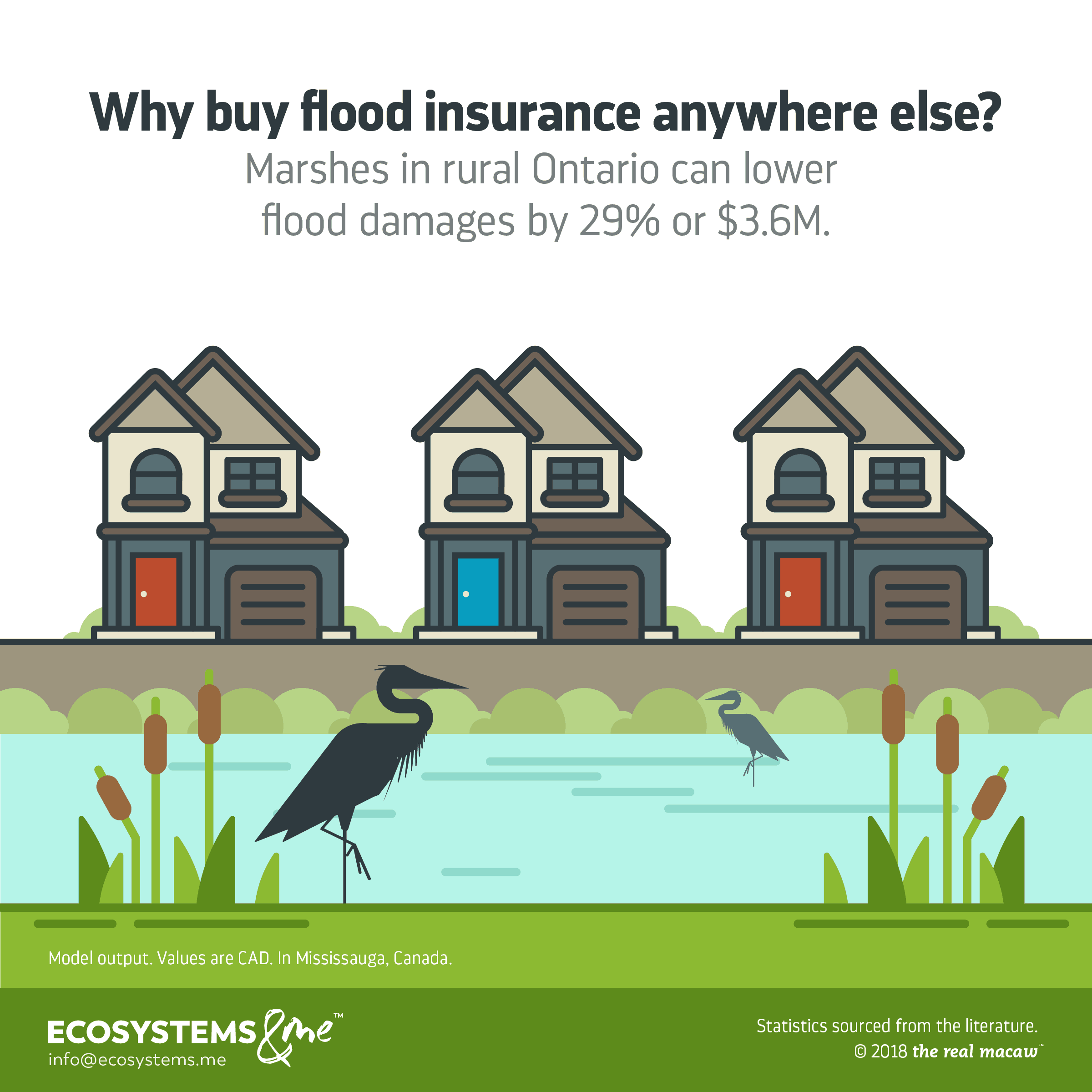
We really have to apologize to SleepCountry Canada for borrowing their jingle, but sometimes these things just stick in your head. But we do think it’s perfect for this story, because it’s all about marshes in Mississauga, Canada, and how they provide flood insurance by reducing damages.
The marshes north of Mississauga
First things first: yes, we covered something similar before. But that was about urban Waterloo, and here we’re talking about a rural part of Mississauga. You may think that this suburb of Toronto goes on forever, but it doesn’t. North of the main city is a major river: the Credit River. It meets Lake Ontario at the appropriately named Port Credit. It drains a 1,000 km-2 area, which includes Mississauga, plus a lot of rural areas further north. In those areas, there are marshes (and if you want to be literal about it, yes, we’ll admit it: it’s a swamp).
And that’s where this story starts. It’s a story of floods, and hurricanes, and what might happen if there were no marshes in northern Mississauga. (Spoiler: more floods.)
If there was a hurricane, what would happen? Well, for one, there’d be rain – lots of rain. It would probably fill the river, and then some. So not only would nearby areas already be waterlogged from heavy rainfall, but they’d probably have to deal with an overflowing river too. Between the two, you could almost guarantee a flood.
More marsh, less flood
Of course, a flood in rural Mississauga may not be quite so bad as a flood in an urban area. Because it’s less developed, there are fewer roads, streets, and buildings. That means water flooding the area is going to react differently. It won’t flow quite as much, because there is more soil and other natural material to soak it up. And there are fewer structures, so there will be less property damage.
But other than that, it’s kind of the same idea. Marshes, also known as wetlands, can help prevent flooding. That’s because they’re mushy, soggy areas that can absorb a lot of water. When there’s a storm or a flood, they act like a natural sponge. Just like you use a sponge to soak up extra water in your sink, marshes soak up flood water that falls as rain or overflows from a river.
Because they do so well at this, they can decrease potential flood damages in rural Mississauga by around 30% ($3.6 million CAD, to be exact). Put another way, that means damages could be that much worse. Even farmland, even though it’s still technically ‘open land’ and not a city, won’t soak up water the same way.
That’s why these marshes are kind of like insurance: quietly sitting in the background, until you realize you need it. The best part? They insure us for free. Never mind buying insurance somewhere else: why would you buy it at all?
[cboxarea id=”cbox-6fYk79ZZF8be9Jmj”]- Canadian Wetlands
